Rich İn Nutrients
When it comes to maintaining a healthy lifestyle, a well-rounded and nutritious diet is key. One of the best ways to ensure that you are getting all of the essential vitamins and minerals your body needs is by consuming foods that are rich in nutrients. These foods are packed with a variety of vitamins, minerals, and other important nutrients that are necessary for optimal health and wellness.
One of the easiest ways to incorporate nutrient-rich foods into your diet is by eating a variety of fruits and vegetables. Leafy greens, such as spinach and kale, are excellent sources of vitamin K, magnesium, and calcium. These nutrients are essential for healthy bones, as well as healthy brain function. Fruits like berries, oranges, and kiwi are loaded with vitamin C, which is important for maintaining a strong immune system.
In addition to fruits and vegetables, there are a variety of other foods that are high in nutrients. Legumes, such as lentils and chickpeas, are rich in protein, fiber, and iron. Nuts and seeds, including almonds, walnuts, and chia seeds, are also packed with nutrients, including healthy fats, protein, and fiber.
- Spinach, kale, and other leafy greens are great sources of vitamin K, magnesium, and calcium
- Berries, oranges, and kiwi are loaded with vitamin C
- Legumes, such as lentils and chickpeas, are rich in protein, fiber, and iron
- Nuts and seeds, including almonds, walnuts, and chia seeds, are packed with healthy fats, protein, and fiber
Consuming a variety of nutrient-rich foods on a regular basis is an important part of maintaining good health. These foods can help to boost your immune system, improve brain function, and promote healthy bones. Whether you are looking to manage your weight, reduce your risk of chronic diseases, or simply feel your best, adding nutrient-rich foods to your diet is a great place to start.
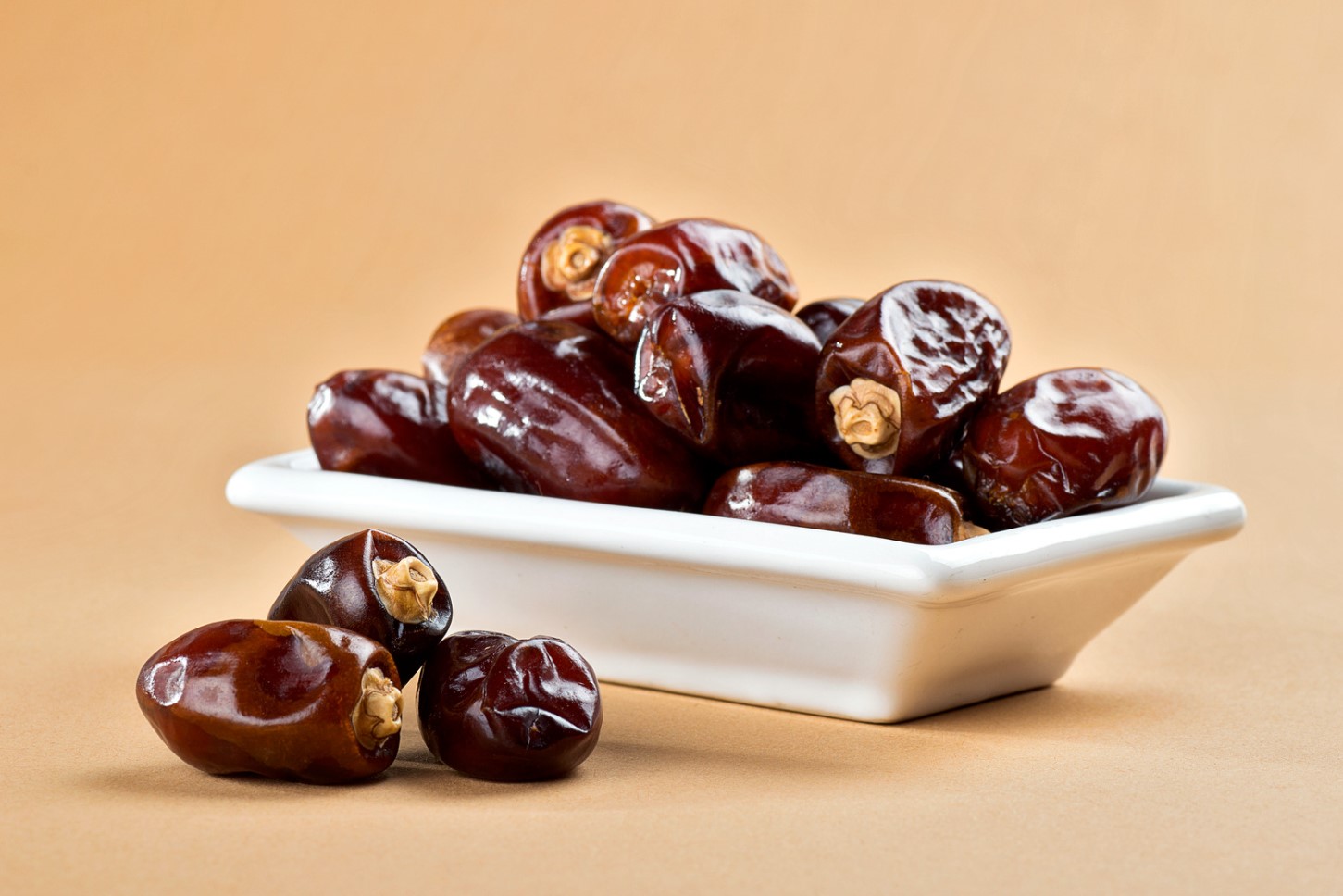
High İn Fiber
Have you heard about the benefits of a high-fiber diet? Fiber is an important nutrient that is essential for our overall health. A high-fiber diet is one that includes a variety of plant-based foods such as fruits, vegetables, whole grains, legumes, nuts, and seeds. These foods are not only rich in fiber, but also in several other nutrients that are beneficial for our health.
There are two types of fiber: soluble and insoluble. Soluble fiber dissolves in water and forms a gel-like substance in the stomach. It helps in slowing down the absorption of sugar and cholesterol, thereby reducing the risk of diabetes and heart disease. Insoluble fiber, on the other hand, passes through the digestive system without breaking down. It adds bulk to the stool and helps in preventing constipation and other digestive disorders.
- Fruits and vegetables are some of the best sources of fiber. Apples, bananas, berries, oranges, carrots, broccoli, and spinach are some examples of fiber-rich foods.
- Whole grains are also a good source of fiber. Brown rice, oatmeal, whole wheat bread, and quinoa are some popular options.
- Legumes such as lentils, chickpeas, and beans are not only high in fiber but also in protein.
A high-fiber diet not only aids in digestion but also promotes weight loss by keeping us feeling full for longer periods of time. Fiber also helps in regulating blood sugar levels which is beneficial for people with diabetes. It has also been linked to a reduced risk of certain types of cancer, such as colorectal cancer. In addition, a diet rich in fiber is good for heart health and can help in reducing the risk of stroke.
It is recommended that adults consume at least 25-30 grams of fiber per day. However, most people fall short of this recommended intake. If you’re trying to increase your fiber intake, it’s important to do so gradually and also to drink plenty of water to avoid constipation.
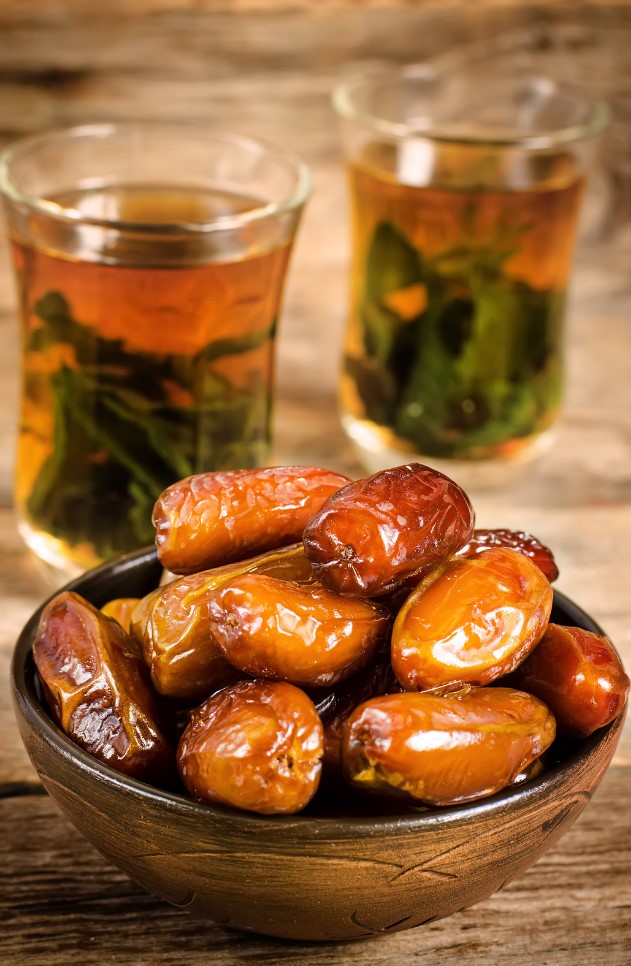
Aid İn Digestion
A good digestion is key to enjoy good health, and one of the best ways to achieve that is by eating foods that aid digestion. Fortunately, there are many delicious and nutritious options that are packed with enzymes, fiber, and other compounds that can help improve digestion and prevent digestive problems. Here are some of the top foods that can aid in digestion, and some tips on how to incorporate them into your diet.
- Yogurt: Yogurt is a great source of probiotics, the good bacteria that live in your gut and help balance your digestive system. Eating yogurt regularly can help with common digestive issues such as bloating, gas, and constipation.
- Ginger: Ginger has anti-inflammatory properties and can help soothe an upset stomach. You can add it to your meals as a spice or drink ginger tea to help with digestion.
- Whole grains: Whole grains are rich in fiber, which helps regulate bowel movements and prevent constipation. Quinoa, brown rice, and oats are great options for a healthy digestion.
Other foods that can aid in digestion include leafy greens, fruits, nuts, and seeds. It’s important to also drink plenty of water and avoid foods that can cause digestive problems, such as fried and spicy foods, caffeine, and alcohol. By incorporating these foods into your diet and making some healthy lifestyle choices, you can improve your digestion and enjoy better health overall.
Promote Brain Health
Did you know that the food you eat can affect your brain health? A balanced and nutritious diet plays an important role in promoting brain health. Certain nutrients and antioxidants are essential for maintaining cognitive function and preventing age-related cognitive decline.
Rich in omega-3 fatty acids: Omega-3 fatty acids are essential for brain health as they are a major component of cell membranes. They help protect the brain against oxidative stress and inflammation. Foods such as fatty fish (salmon, sardines, and tuna), nuts (walnuts), and seeds (flaxseeds and chia seeds) are rich in omega-3 fatty acids. If you don’t consume enough of these foods, you can also take omega-3 supplements.
Antioxidant-rich foods: Antioxidants are compounds that help prevent oxidative stress and inflammation, which can damage brain cells. Foods such as berries (blueberries, strawberries, and raspberries), dark chocolate, and green leafy vegetables (kale and spinach) are rich in antioxidants. Consuming a variety of antioxidant-rich foods can help promote brain health and reduce the risk of cognitive decline.
B vitamins: B vitamins are essential for brain function and play a role in the production of neurotransmitters, which regulate mood and cognitive function. Foods such as whole grains, leafy greens, and legumes are good sources of B vitamins. Consuming a balanced diet that includes these foods can help promote brain health and prevent cognitive decline.
Consuming a balanced and nutritious diet can help promote brain health and prevent cognitive decline. Incorporating foods rich in omega-3 fatty acids, antioxidants, and B vitamins into your diet can help protect your brain against oxidative stress and inflammation. Don’t forget to also engage in regular physical activity and get enough sleep, as they too play an important role in maintaining brain health.
Boost Immune System
A strong immune system is crucial in keeping our body healthy and strong. It acts as the first line of defense against infections and diseases. However, certain factors such as stress, poor nutrition, lack of sleep, and a sedentary lifestyle can weaken our immune system, making us more susceptible to illnesses. Fortunately, there are various ways to boost our immune system naturally, and one of them is by consuming immune-boosting foods.
1. Citrus Fruits
Citrus fruits such as oranges, lemons, and grapefruits are packed with vitamin C, a potent antioxidant that helps stimulate the production of white blood cells. These cells are responsible for fighting off infections and diseases. Other than vitamin C, citrus fruits also contain flavonoids that have anti-inflammatory and antioxidant properties.
2. Garlic
Garlic has been used as a natural remedy for centuries, thanks to its antimicrobial and immune-boosting properties. It contains sulfur compounds that enhance the activity of immune cells and improve their efficiency in fighting infections. Garlic is also a good source of vitamin B6 and selenium, which are important for the immune system.
- 3. Ginger
Ginger is a root that has been traditionally used as a natural remedy for various ailments. It has anti-inflammatory and antioxidant properties that help enhance the immune system. Ginger also contains gingerols and shogaols, compounds that have been shown to have antibacterial and antiviral effects. Drinking ginger tea or adding ginger to your meals can help boost your immune system.
| Immune-Boosting Foods | Benefits |
|---|---|
| Fatty fish such as salmon, tuna, and mackerel | Rich in omega-3 fatty acids that reduce inflammation and boost the immune system |
| Almonds | Contain vitamin E, an antioxidant that helps protect the immune system from oxidative stress |
| Spinach | Rich in vitamin C and antioxidants that strengthen the immune system |
Other immune-boosting foods include yogurt, green tea, turmeric, and bell peppers. Incorporating these foods into your diet can help improve your immune system and keep you healthy. Remember to also practice good hygiene, exercise regularly, and get enough sleep to further enhance your immune system.
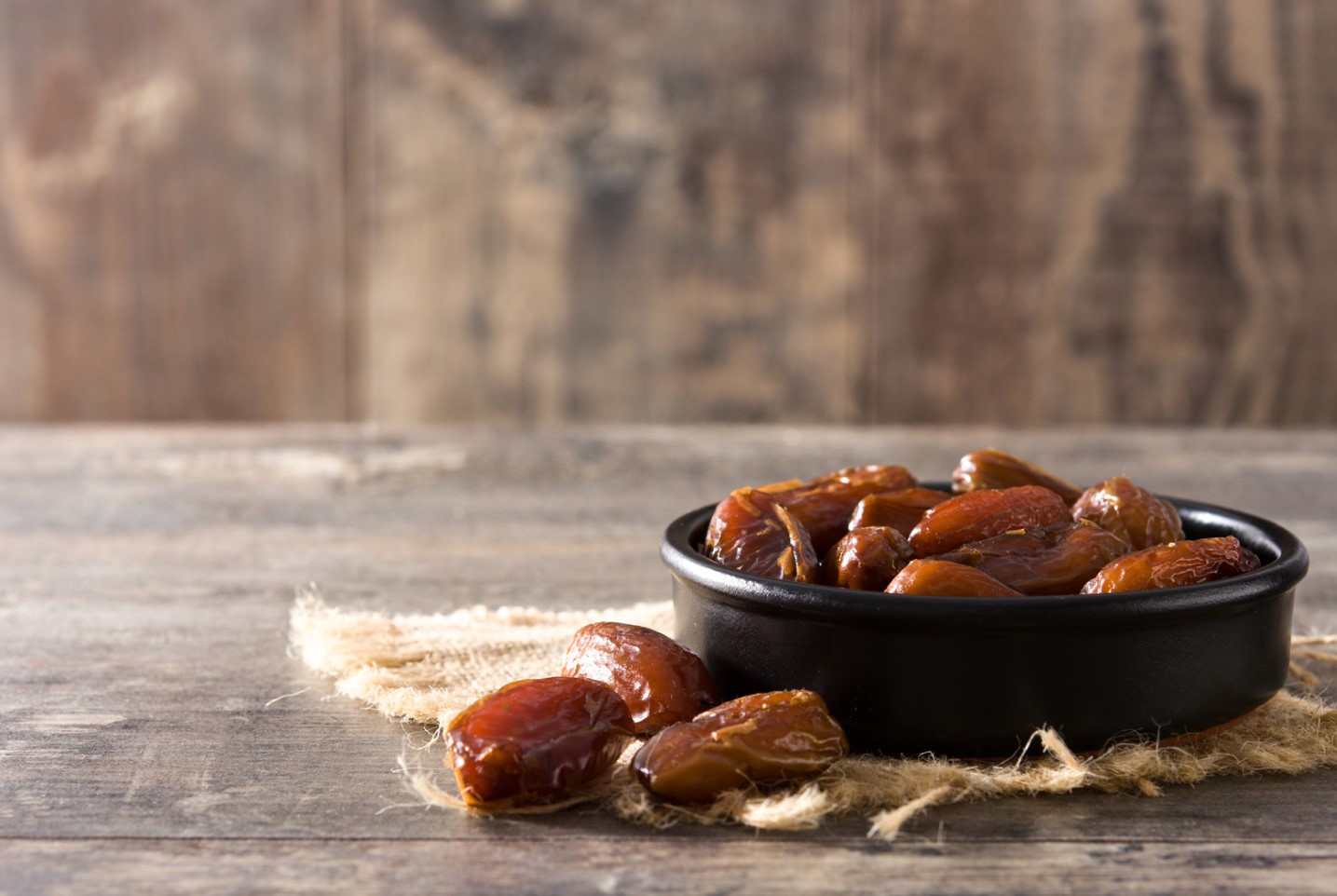
Anti-Inflammatory Properties
Anti-Inflammatory Properties
Inflammation is a natural biological response of the body to fight against harmful stimuli, such as pathogens and irritants. However, chronic inflammation can lead to several health problems, including autoimmune disorders and cancer. Foods that possess anti-inflammatory properties can help reduce inflammation and the risk of chronic diseases.
Here are some foods that are rich in anti-inflammatory properties:
- Turmeric – Curcumin, the active compound in turmeric, has potent anti-inflammatory effects.
- Berries – Berries, such as blueberries and strawberries, contain antioxidants that can help fight inflammation.
- Leafy Greens – Vegetables like spinach, kale, and collard greens are packed with antioxidants, vitamins, and minerals that possess anti-inflammatory properties.
Foods that are high in omega-3 fatty acids, such as salmon, tuna, and sardines, can also help reduce inflammation. On the other hand, processed foods and those high in sugar and unhealthy fats can promote inflammation and should be limited.
Eating a variety of whole, nutrient-dense foods that possess anti-inflammatory properties can help maintain overall health and reduce the risk of chronic diseases.
Natural Energy Booster
Feeling tired all the time? Do you constantly have caffeine or energy drinks to keep you going? You might want to look into incorporating natural energy boosters into your diet! Not only are they healthier, but they also give you sustainable energy throughout the day.
One of the best natural energy boosters is drinking water. Dehydration can make you feel sluggish, so it’s important to stay hydrated throughout the day. Another great way to boost energy is by consuming foods that are high in iron. Iron plays a crucial role in transporting oxygen throughout the body, which helps you feel more alert and awake.
- Spinach: This leafy green is packed with iron and other essential vitamins and minerals. Adding spinach to your smoothies or salads can help boost your energy levels throughout the day.
- Almonds: These nuts are not only high in iron, but they’re also a great source of healthy fats and protein. They’re a perfect snack for when you need an energy boost.
Another natural energy booster is consuming foods that are high in complex carbohydrates. Carbs provide energy, but complex carbs release energy slowly, which means you won’t experience a crash like you would with simple carbs.
- Sweet Potatoes: These are a great source of complex carbs, vitamins, and fiber. They’re also full of beta-carotene, which is an antioxidant that helps with energy production.
- Quinoa: This is a complete protein that also contains fiber and complex carbs. It’s an excellent substitute for rice or pasta, and it’s versatile enough to be used in salads or as a side dish.
Lastly, don’t forget about the power of a good night’s sleep. Getting enough rest is crucial for maintaining energy levels throughout the day. Aim for 7-8 hours of sleep a night for optimal energy levels.
| Food | Nutrient | Energy-Boosting Benefit |
|---|---|---|
| Spinach | Iron | Transports oxygen to boost alertness |
| Almonds | Iron | Provides sustainable energy throughout the day |
| Sweet Potatoes | Complex Carbs, Vitamin A, Fiber | Slow-release energy for longer-lasting vitality |
| Quinoa | Protein, Complex Carbs, Fiber | Helps stabilize blood sugar levels for sustained energy |
Overall, natural energy boosters are an excellent way to incorporate sustained energy throughout the day. By drinking water, consuming foods that are high in iron and complex carbs, and getting enough rest, you can feel more alert and awake without relying on caffeine or sugar.
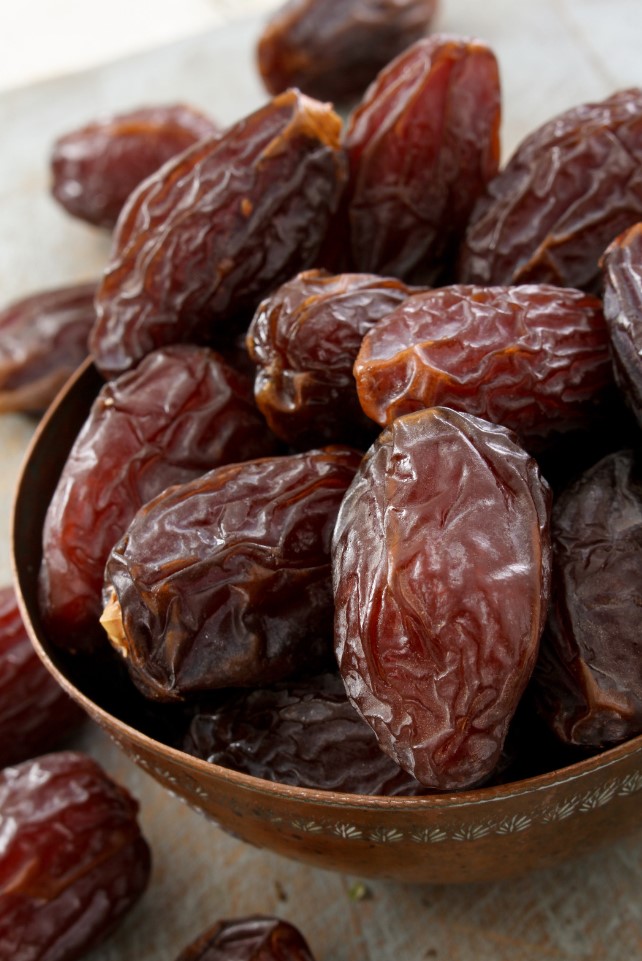
Improve Bone Health
Improve Bone Health with These Nutritious Foods
As we age, our bones start to lose density, which can lead to osteoporosis and an increased risk of fractures. Fortunately, by eating a diet rich in calcium, vitamin D, and other important nutrients, we can help keep our bones healthy and strong.
1. Dairy Products: Dairy products such as milk, cheese, and yogurt are all excellent sources of calcium, which is essential for strong bones. One cup of milk contains around 300 milligrams of calcium, or roughly one-third of the daily recommended intake for adults.
2. Leafy Greens: Leafy green vegetables like spinach and kale also pack a powerful punch when it comes to bone health. These veggies are rich in calcium, vitamin K, and other important nutrients that help promote strong bones.
- Spinach
- Kale
- Collard greens
3. Nuts and Seeds: Nuts and seeds are another great source of bone-boosting nutrients. Almonds, for example, are high in calcium and magnesium, while pumpkin seeds are rich in zinc and vitamin K.
| Nuts | Amount of Calcium per 100 grams |
|---|---|
| Almonds | 264 mg |
| Brazil Nuts | 160 mg |
| Walnuts | 98 mg |
By incorporating these nutrient-dense foods into your diet, you can help keep your bones strong and healthy as you age.
May Help Prevent Cancer
Cancer is one of the most fatal and prevalent diseases in the world. In fact, it affects millions of people worldwide, and the numbers are increasing year by year. While there are different treatment options for cancer patients, preventing it from occurring in the first place is always the best course of action. One way to do this is by making sure that your diet is filled with foods that may help prevent cancer. Here are some cancer-fighting foods that you can add to your diet:
- Berries: Berries contain antioxidants that help fight cancer cells in the body. Varieties such as blueberries, strawberries, raspberries, and blackberries are all rich in antioxidants that can protect the body from harmful free radicals. They also contain ellagic acid, which has been shown to have anti-cancer properties.
- Cruciferous Vegetables: Vegetables such as broccoli, cauliflower, kale, and Brussels sprouts contain a compound called sulforaphane, which has been shown to have anti-cancer properties. Sulforaphane helps the body detoxify carcinogens and reduces the risk of developing cancer.
- Ginger: Ginger contains gingerol, a compound that has anti-inflammatory and antioxidant properties. Several studies have shown that ginger can help prevent cancer by inhibiting the growth of cancer cells and reducing inflammation in the body.
In addition to these foods, other studies have shown that green tea, garlic, turmeric, and legumes can also help prevent cancer. It’s important to note that while these foods may help reduce the risk of cancer, they cannot prevent it entirely. It’s also essential to maintain a healthy lifestyle by getting regular exercise, reducing stress, and avoiding smoking and excessive alcohol consumption.
Conclusion
It’s clear that a healthy diet filled with nutrient-dense foods may help prevent cancer. While there is no one magical food that can prevent cancer entirely, incorporating cancer-fighting foods into your diet can have a significant impact on your health and wellbeing. Remember to focus on a variety of fruits, vegetables, whole grains, and lean proteins to maintain a balanced and healthy diet.
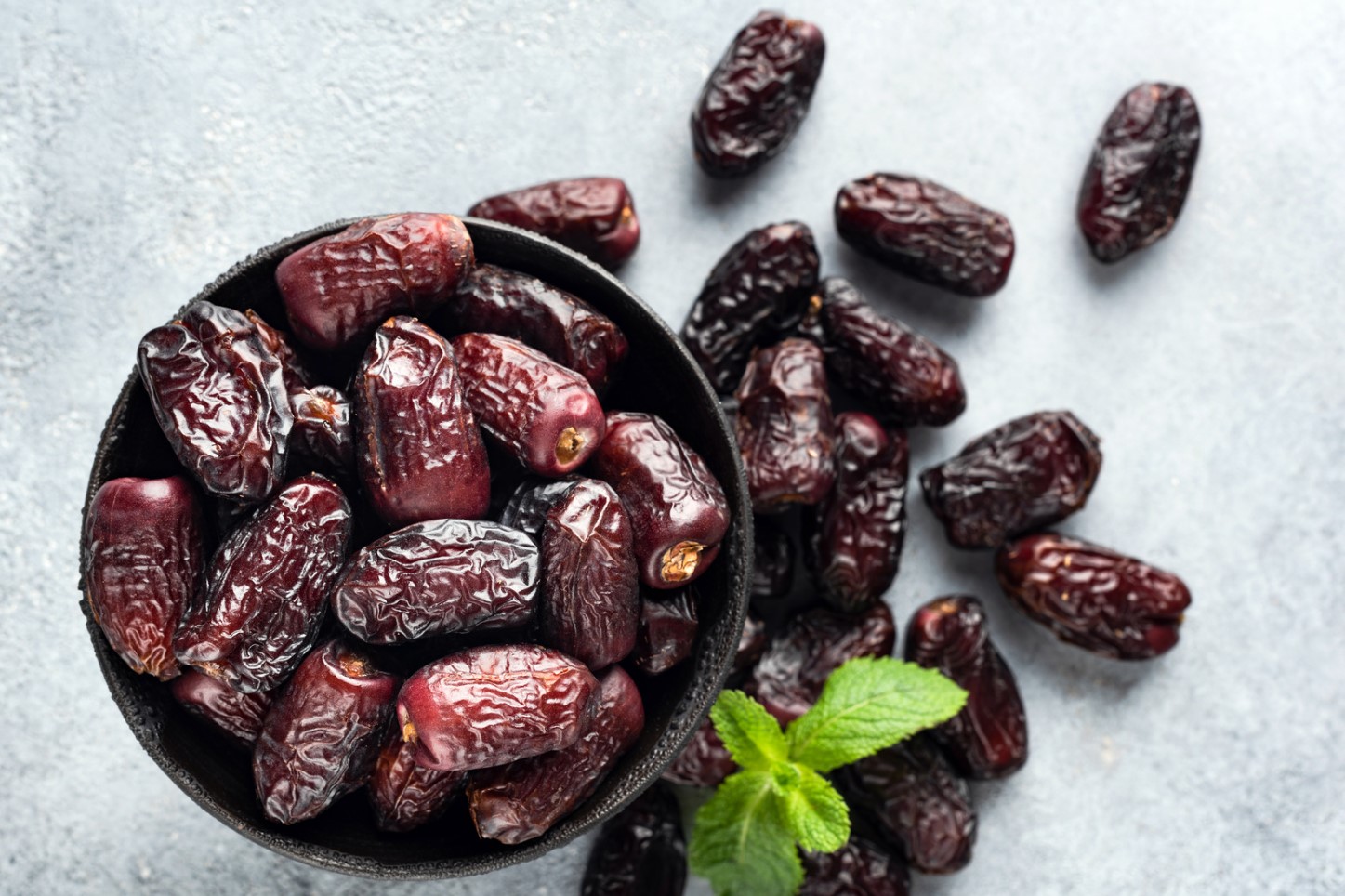
Ideal For Weight Management
Weight management is a challenge for most people. While there are many weight loss solutions available in the market, not all of them are effective or healthy. One of the best ways to manage weight is through the consumption of the right foods. Some foods can be ideal for weight management as they help you stay full for longer periods and provide your body with the necessary nutrients.
- One of the best foods for weight management is fruits. Fruits are low in calories and high in fiber, making them a great option for those trying to lose weight. Some fruits that you can incorporate into your diet include berries, apples, and grapefruit.
- Vegetables are also excellent for weight management. They are low in calories, high in fiber, and packed with nutrients that your body needs. Leafy greens, broccoli, and carrots are some of the vegetables that you can consume to help manage weight.
- Whole grains are also ideal for weight management. They are rich in fiber, which helps you feel full, and they provide your body with the necessary energy to function properly. Whole grain pasta, brown rice, and oatmeal are some examples of whole grains that you can incorporate into your diet.
Aside from the foods mentioned above, protein-rich foods are also ideal for weight management. Foods like eggs, chicken, and fish are excellent sources of protein that can help you feel full for longer periods. It is also essential to drink plenty of water to help you stay hydrated and feel full.
| Foods to Include | Foods to Avoid |
|---|---|
| Fruits and vegetables | Processed foods |
| Whole grains | Fast food |
| Lean protein | Sugary foods |
In conclusion, weight management is not about depriving yourself of food but rather about making the right choices. By incorporating the foods mentioned above into your diet and avoiding processed and sugary foods, you can manage your weight effectively and healthily.
Promote Healthy Skin
Healthy skin is an important aspect of our overall well-being. When our skin is healthy, it not only looks good but also protects us from external harm. However, maintaining healthy skin can be a challenging task. From pollution to UV rays, our skin is exposed to a variety of harmful factors on a daily basis. Fortunately, certain foods can help promote healthy skin.
The first step towards promoting healthy skin is to consume foods that are rich in antioxidants. Antioxidants help protect our skin from damage caused by free radicals. Foods that are rich in antioxidants include blueberries, strawberries, and dark chocolate. These foods are also high in Vitamin C and E, both of which are essential for maintaining healthy skin.
- Blueberries: Blueberries are a great source of antioxidants. They are also high in fiber, which helps regulate digestion and promote healthy skin.
- Strawberries: Strawberries are loaded with Vitamin C, which helps boost collagen production. Collagen is a protein that gives our skin its elasticity and helps prevent wrinkles.
- Dark chocolate: Dark chocolate contains flavanols, which are antioxidants that help protect our skin from damage caused by free radicals.
In addition to foods that are rich in antioxidants, it is important to consume foods that are high in healthy fats. Healthy fats promote healthy skin by providing our skin cells with the necessary nutrients to function properly. Foods that are high in healthy fats include salmon, avocados, and nuts.
| Food | Healthy Fat Content |
|---|---|
| Salmon | Omega-3 fatty acids |
| Avocado | Monounsaturated fatty acids |
| Nuts | Polyunsaturated fatty acids |
Finally, it is important to stay hydrated to promote healthy skin. Drinking plenty of water helps flush out toxins from our body and keeps our skin hydrated. In addition to water, consuming foods that are high in water content such as cucumbers and watermelon can also help keep our skin hydrated.
In conclusion, maintaining healthy skin requires a holistic approach. By consuming foods that are rich in antioxidants, healthy fats, and staying hydrated, we can promote healthy skin from the inside out.
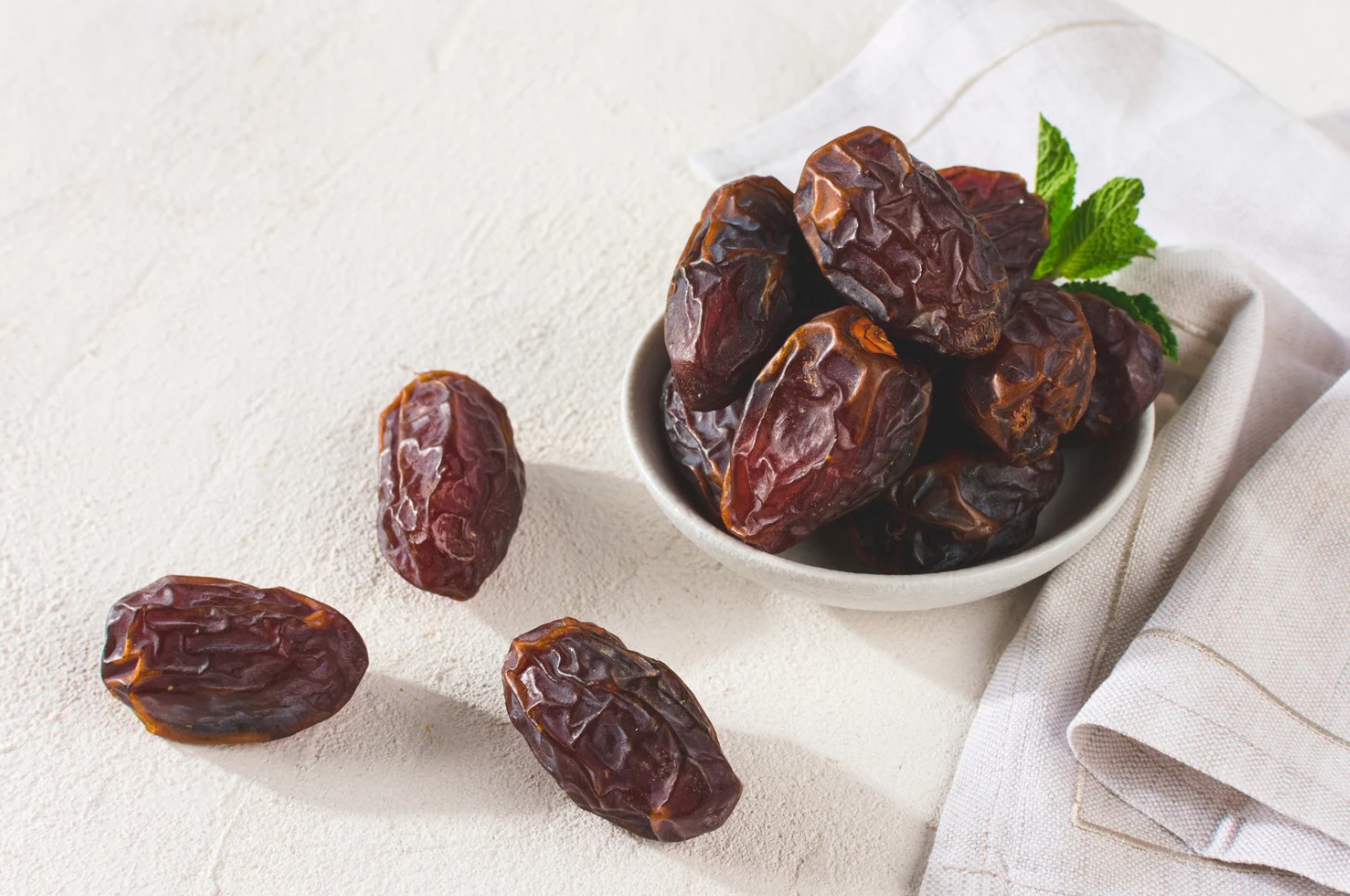
Rich İn Antioxidants
Fruits and vegetables are essential parts of our diet that provide us with numerous health benefits. One of these benefits is their richness in antioxidants. Antioxidants are substances that help protect our cells from damaging free radicals that can cause diseases like cancer and heart disease. In this blog post, we will explore the different types of antioxidants and the various fruits and vegetables that are rich in them.
There are several types of antioxidants, including vitamin C, vitamin E, beta-carotene, and selenium. These antioxidants work together to protect our cells from damage caused by free radicals. Vitamin C is found in many fruits, such as oranges, strawberries, kiwi, and grapefruit. Vitamin E is often found in nuts and seeds, while beta-carotene is found in orange and yellow vegetables like carrots and sweet potatoes. Selenium can be found in seafood, poultry, and whole grains.
If you want to incorporate more antioxidants into your diet, there are many fruits and vegetables to choose from. Blueberries, raspberries, and blackberries are excellent sources of antioxidants. Leafy green vegetables like spinach, kale, and broccoli are also rich in antioxidants. Other fruits and vegetables that are high in antioxidants include cherries, pomegranates, tomatoes, and bell peppers.
- To sum up, a diet rich in antioxidants can help protect your cells from damage and lower your risk of diseases like cancer and heart disease. There are many different types of antioxidants, and they can be found in a variety of fruits, vegetables, nuts, and seeds. Therefore, it is important to incorporate a wide range of these foods into your daily diet for optimal health.
Regulate Blood Pressure
High blood pressure, also known as hypertension, is a common health issue that affects people of all ages. This condition occurs when the force of blood pushing against the walls of the arteries is too high. High blood pressure can increase the risk of heart disease, stroke, and kidney failure. Fortunately, there are several ways to lower blood pressure levels, and consuming a diet rich in certain foods can be one of these ways.
Foods that Regulate Blood Pressure:
- Berries: Berries are packed with antioxidants that can help to lower high blood pressure. They also contain flavonoids that can improve circulation and reduce inflammation. Blueberries, raspberries, and strawberries are good options to add to your diet if you have high blood pressure.
- Leafy Greens: Leafy greens like spinach, kale, and collard greens are high in potassium, which can help to regulate blood pressure. Potassium helps to balance the sodium levels in the body, which can cause high blood pressure. These greens also contain nitrates, which can relax blood vessels and improve blood flow.
The Dangers of High Blood Pressure:
| Normal Blood Pressure | High Blood Pressure | |
|---|---|---|
| Systolic Pressure | Less than 120 mmHg | 140 mmHg or higher |
| Diastolic Pressure | Less than 80 mmHg | 90 mmHg or higher |
If your blood pressure levels are consistently above 140/90 mmHg, you may have high blood pressure. If left untreated, high blood pressure can cause damage to your arteries, heart, and other organs. That’s why it’s important to manage your blood pressure levels by eating a healthy diet, exercising regularly, and monitoring your blood pressure at home.
In Conclusion:
If you have high blood pressure or are at risk of developing it, it’s important to include foods in your diet that can help to regulate blood pressure levels. This can be achieved by consuming a diet rich in berries, leafy greens, and other heart-healthy foods. It’s also beneficial to limit your intake of processed foods, salt, and sugar, which can increase blood pressure levels. With a few simple dietary changes, you can help to reduce your risk of heart disease, stroke, and other health complications associated with high blood pressure.
Reduce The Risk Of Stroke
Reduce the Risk of Stroke with These Healthy Habits
Stroke is a serious and potentially life-threatening condition that affects millions of people each year. While there are many factors that can contribute to stroke risk, including age, genetics, and lifestyle choices, there are also several healthy habits that can help reduce your risk of stroke. In this blog post, we’ll explore some of the most effective ways to keep your brain and heart healthy and protect yourself against stroke.
Eat a Healthy, Balanced Diet
One of the most important things you can do to reduce your stroke risk is to eat a healthy, balanced diet. This means focusing on whole, nutrient-dense foods like fruits, vegetables, whole grains, and lean proteins, and minimizing your intake of processed foods and sugary drinks. Eating a diet that is rich in fiber, vitamins, and minerals can help lower your blood pressure, reduce inflammation, and improve your overall cardiovascular health.
Stay Physically Active
- Exercise regularly to keep your heart and arteries healthy
- Engage in at least 150 minutes of moderate aerobic activity per week
- Strength-train twice a week to build muscle and improve mobility
Regular physical activity is another key factor in preventing stroke. Staying active can help lower your blood pressure, reduce cholesterol levels, and strengthen your heart and blood vessels. Try to aim for at least 30 minutes of moderate-intensity exercise most days of the week, such as brisk walking, cycling, or swimming.
Quit Smoking and Limit Alcohol Intake
- Smoking damages your blood vessels and can raise your blood pressure
- Limit alcohol intake to one drink a day if you’re a woman, and two drinks a day if you’re a man
Smoking and excessive alcohol intake are two major risk factors for stroke. If you smoke, quitting can help reduce your risk of stroke and improve your overall health. Similarly, limiting your alcohol intake to one drink a day (for women) or two drinks a day (for men) can help protect your heart and reduce your stroke risk.
In conclusion, reducing your risk of stroke involves making a commitment to living a healthy lifestyle. By eating a healthy, balanced diet, staying physically active, and avoiding unhealthy habits like smoking and excessive drinking, you can help protect your brain and heart and reduce your risk of this serious condition.
Enhance Heart Health
There are many ways to keep your heart healthy and strong. One of the most effective ways is by consuming foods that are rich in essential nutrients and antioxidants. By including these foods in your daily diet, you can enhance your heart health and reduce the risk of heart-related diseases.
One food group that is particularly beneficial for your heart is fruits and vegetables. These foods are loaded with essential vitamins, minerals, and antioxidants that help to protect your heart from damage caused by free radicals. Some of the best fruits and vegetables for heart health include berries, leafy greens, citrus fruits, and cruciferous vegetables like broccoli and cabbage.
- Berries such as blueberries, strawberries, and raspberries are packed with antioxidants that help to reduce inflammation and protect your heart from damage.
- Leafy greens like spinach and kale are rich in vitamins and minerals, as well as antioxidants like lutein and zeaxanthin that help to protect your heart from damage.
- Citrus fruits like oranges and grapefruits are high in vitamin C, a powerful antioxidant that helps to reduce inflammation and protect your heart from damage.
- Cruciferous vegetables like broccoli and cabbage are high in fiber and contain sulfur compounds that help to reduce inflammation and protect your heart from damage.
In addition to fruits and vegetables, other foods that are beneficial for heart health include nuts, seeds, whole grains, and fatty fish like salmon and tuna. These foods are rich in essential nutrients like omega-3 fatty acids, fiber, and vitamins and minerals that help to support heart health.
| Food Group | Examples |
|---|---|
| Nuts and Seeds | Almonds, walnuts, chia seeds, flaxseeds |
| Whole Grains | Brown rice, quinoa, oats, whole wheat pasta |
| Fatty Fish | Salmon, tuna, mackerel, sardines |
By including these foods in your daily diet, you can help to enhance your heart health and reduce the risk of heart-related diseases. Remember to also limit your intake of processed foods, sugary drinks, and saturated and trans fats, which can have a negative impact on heart health.